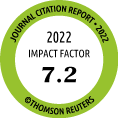Return to content in this issue
Positioning of Tezepelumab in Severe Asthma
Miralles-López JC1,2, Antolín-Amérigo D2,3,4, García-Moguel I2,5,6, Domínguez-Ortega J2,7,8,9, Delgado-Romero J2,10, Quirce S2,7,8,9
1Allergy Department, Hospital General Universitario Reina Sofía, Murcia, Spain
2SEAIC Asthma Committee
3Allergy Department, Hospital Universitario Ramón y Cajal, Madrid, Spain
4Instituto Ramón y Cajal de Investigación Sanitaria (IRYCIS) Madrid, Spain
5Allergy Department, Hospital Universitario 12 de Octubre, Madrid, Spain
6Instituto de Investigación Sanitaria Hospital 12 de Octubre (imas12), Madrid, Spain
7Allergy Department, La Paz University Hospital, Madrid, Spain
8IdiPAZ, Madrid, Spain
9CIBER of Respiratory Diseases (CIBERES), Madrid, Spain
10Allergology Clinical Management Unit, Virgen Macarena Hospital, Seville, Spain
J Investig Allergol Clin Immunol 2024; Vol 34(1)
: 1-11
doi: 10.18176/jiaci.0949
Asthma is one of the most common chronic diseases and is estimated to be severe in 3%-10% of affected patients. There is a need for additional biologic treatments that are highly efficacious across the spectrum of severe uncontrolled asthma. Currently available drugs inhibit 1 or 2 specific cytokines or IgE antibodies and thus only partially suppress the complex type 2 (T2) inflammatory cascade. Biologics targeting more upstream molecules in the pathophysiological pathway of asthma could treat asthma more effectively. Tezepelumab is a human monoclonal immunoglobulin G2λ antibody that targets the cytokine thymic stromal lymphopoietin (TSLP). It is the first marketed biologic against an epithelial cell–derived cytokine, preventing binding of TSLP to its receptor and reducing the immune stimuli that TSLP can trigger in different asthma endotypes. Tezepelumab reduces downstream biomarkers of inflammation, such as blood and airway eosinophils, FeNO, IgE, IL-5, and IL-13. Tezepelumab provides a clinical benefit in severe asthma, reducing the annualized asthma exacerbation rate in patients with either high or low levels of biomarkers of T2 inflammation, although the effect is greater among those with high levels. The drug has been shown to improve asthma control, quality of life, and lung function and reduce airway hyperresponsiveness. Therefore, tezepelumab can be used across the spectrum of patients with severe uncontrolled asthma, especially in T2-high patients. This review includes a positioning statement by the authors, all of whom are members of the SEAIC Asthma Committee.
Key words: Tezepelumab, Severe asthma, Efficacy, Positioning
| Title | Type | Size | |
|---|---|---|---|
 |
doi10.18176_jiaci.0949_supplemental-materials_table_1.pdf | 244.40 Kb |



